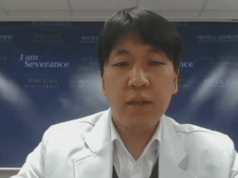
Nexeon MedSystems has announced its completion of an initial series of clinical studies evaluating the utilization of transcutaneous auricular vagus nerve stimulation (aVNS) for the relief of paroxysmal atrial fibrillation. The company was previously awarded a €3.4M research grant in relation to this study from the Walloon Region government of Belgium in coordination with the region’s health competitiveness cluster BioWin.
Will Rosellini, CEO of Nexeon, stated that their team of researchers in collaboration with their partners in the Walloon Region is testing the clinical efficacy of the stimulation therapy in parallel with ongoing engineering development of its aVNS system.
Nexeon’s director of clinical research Navid Khodaparast commented on the study’s preliminary results, saying that the “aVNS system supported our original hypothesis by demonstrating a significant stimulation-induced effect on heart rate variability, which may prove to be effective in treating atrial fibrillation. It is our belief that a more holistic approach to the application of neurostimulation will usher in a new era of neuro-technological advances. While our near-term target is to discover an improved therapy for patients with atrial fibrillation, we recognize the greater implication of monitoring, and potentially modulating, signals from the heart in a population of patients suffering from chronic diseases who are managing multiple comorbidities.”
Next steps related to this clinical program will be the completion of a study on twenty patients suffering from paroxysmal atrial fibrillation. The protocol includes an assessment of therapeutic safety and feasibility while participants receive chronic aVNS.
VNS has been used for years to treat epilepsy. Researchers worldwide are investigating whether delivering pulses of electricity to the nerve can help treat tinnitus, stroke, headache, asthma, obesity, depression, Crohn’s disease, and more.









